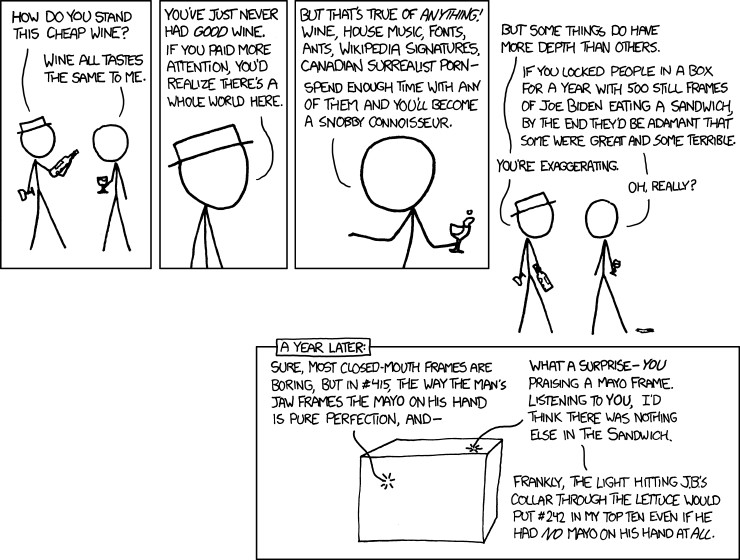Please quote me fully: "We've been at the point where only confirmation bias, comb filtering, what one had for lunch and maybe phase of the Moon will find a difference."aciddose wrote:Jafo wrote:We've been at the point where only what one had for lunch will find a difference.
Besides, any physicist well tell you that reality is digital anyway.
https://www.youtube.com/watch?v=S1h07ws--CMegbert101 wrote:Starsky Carr's Minimoog shootout should tell you everything you need to know about contemporary analog modelling in VSTs:
https://www.youtube.com/watch?v=S1h07ws--CM
I'll just leave this here.[/quote]
Alas, it's not valid evidence, since it's not double-blind -- as well as being an example of confirmation bias. Yes, there are clear differences between each emulation, but there are also clear differences between each hardware Minimoog. Which emulation is the true Minimoog? Which Minimoog is the real Minimoog? (It's like asking what's the best PAF clone in a pickup forum.)
Still, it's a great comparison, and has me rethinking my position a bit; thank you. Gives me hope that I might be wrong!




